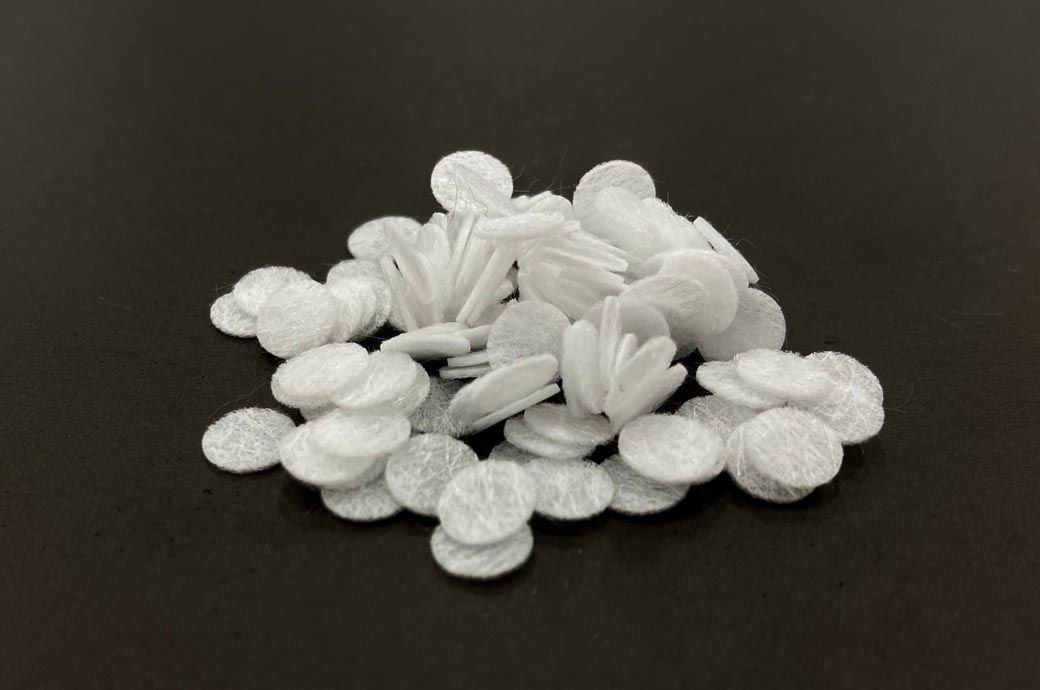
Teijin Frontier Co, Ltd, the Teijin Group’s fibres and products converting company, has announced that it has developed a new nonwoven microcarriers that enable speedy, large-scale, high-quality cell culture. This scaffolding material for a wide range of cell types facilitates adherence and growth in three dimensions. The new nonwoven microcarriers combine Teijin Frontier’s proprietary fibre process and nonwoven design technology and fibre-related bio-medical expertise by professor Satoshi Fujita at the department of Frontier Fibre Technology and Science, faculty of Engineering, University of Fukui, Japan.
Teijin Frontier will start shipping the samples of the new nonwoven microcarriers to research institutes, universities, pharmaceutical manufacturers and cosmetics manufacturers beginning in July. In 2024, the company plans to expand marketing of the new nonwoven microcarriers worldwide aiming for global sales of JPY 100 million in fiscal 2026. Thanks to its special structure, which is physically similar to the space in which cells proliferate in vivo, new nonwoven microcarriers enable cells to grow along its fibres in three dimensions. It also facilitates circulation of the culture medium and oxygen necessary for cell growth. These new microcarriers are appropriate for a variety of cell lines and can be used to culture mesenchymal stem cell. A mesenchymal stem cell is a diverse cell with self-renewal and differentiation abilities. Therefore, they are expected to be used in regenerative medicines as they can effectively differentiate into human functions such as nerves, muscles and bones.
Cell culture technology is playing a major role in regenerative medicine. Traditional cell culture generally uses two-dimensional planar technology such as culture dishes and T-flasks; however, the cell adhesion area is small, hundreds of dishes are required to culture a few grams of tissue, and extensive equipment, personnel and man-hours are required.
Using cell culture bioreactors, which are capable of culturing a large number of cells, can improve efficiency. Microcarriers are used as scaffolding materials for bioreactors, a device that perform biochemical reactions with their mixing capabilities, to control cell adhesion, proliferation and differentiation. Conventional microcarriers are generally shaped like beads, but with the diversification of cell lines and culture methods, new types of microcarriers that enable higher-volume, higher-quality cultures.
The new nonwoven microcarriers can be used in cell culture methods that employ fixed bed bioreactors or agitation bioreactors. The new nonwoven microcarriers are particularly effective when the bioreactor has no agitating blades. Combining shaking of the culture with mild shear force allows the new nonwoven microcarriers to collect a sufficient number of cells within a week without changing the culture medium.
Another advantage of the new nonwoven microcarriers is their nonwoven high porous structure and therefore has a large surface area. This larger area allows more cells to be cultured than with conventional scaffolding materials. Teijin Frontier’s research demonstrated that the new nonwoven microcarriers are able to increase the number of cells by 30 per cent in a culture period of four days, compared to conventional bead-type microcarriers.
Fibre2Fashion News Desk (RR)

